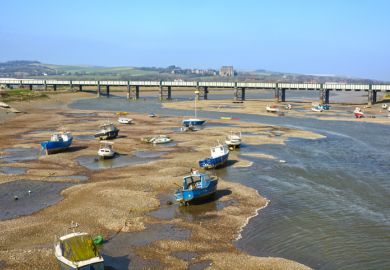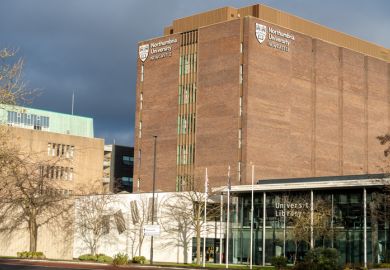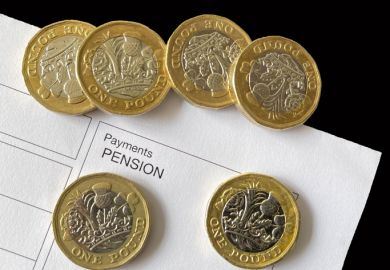Cuts to the pensions of UK higher education staff were not a mistake despite the fact that they now look highly likely to be reversed after just two years, according to the chair of the Universities Superannuation Scheme (USS).
Confirming a “big turnaround” in the USS’ finances, Dame Kate Barker told reporters that it had had “no alternative” but to cut benefits and raise contributions in April last year as the much more favourable financial climate that has been the catalyst for the recovery had not been foreseen.
The USS trustee has released the funding assumptions being used in its all-important 2023 valuation, which confirm that the value of its assets has risen from £66.5 billion in 2020 to £73.1 billion.
Its technical provisions – the amount needed to fulfil pensions promises – has fallen from £80.6 billion to £65.7 billion in the same period, meaning a £14.1 billion deficit in 2020 has been wiped out and the scheme is now projected to have a £7.4 billion surplus.
The current contribution rate paid by employers and staff of 31.4 per cent could fall to as low as 16.2 per cent, the USS said, with no need for the extra 6.2 per cent in contributions that has been going towards paying off the deficit.

However, it said both Universities UK and the University and College Union had asked for benefits to be priced at pre-April 2022 levels, which would require a higher contribution rate of 20.6 per cent. A breakdown of the share of contributions to be paid by members and employers will be decided by the joint negotiating committee (JNC).
A consultation has now been opened, allowing the scheme’s 331 participating employers to respond to the proposals. This ends in September, and a final contribution rate is due to be determined by the USS in October, with the JNC needing to make a final decision by December at the latest, with a view to implementing any changes by April 2024.
Based on the approach outlined, the USS said members could see their defined benefits accrue at a faster rate than currently, the inflation cap of 2.5 per cent raised to 5 per cent – and half of any increase up to 15 per cent – and the salary threshold at which contributions are paid into the defined contributions part of the scheme set at £66,400, a substantial hike from the current £41,000.
Dame Kate said the rise in interest rates after a decade of stagnation, alongside “wider financial conditions”, had fuelled the improvements in the scheme’s funding position.
She said the cost of making new pensions promises has fallen sharply because the price of the assets to back those promises has come down and the USS therefore expects to make higher returns in the future.
UK government gilt yields that had been falling in value for 10 years had been reversed in just 18 months, Dame Kate said, showing the “volatility” of the financial markets.
This “enormous shift” was not something that anyone was predicting in 2020, she said, and if it had been then the changes made after the last valuation might have been different.
Cuts made to pensions based on the valuation sparked a years-long bitter industrial dispute, with affected academics carrying out dozens of days of strikes in attempt to win back their benefits.
Asked by Times Higher Education if she now felt that the USS should have done things differently, Dame Kate said she stood by the decisions that had been made.
“You can, of course, discuss whether the way in which valuations are done is the right way, but it is very hard to think of a better one,” she said.
“Given regulations on valuations, I don’t think we had any choice but to call a valuation for March 2020, and a year further on things looked no better.
“I don’t think there was any alternative to making the changes that happened. I don’t look back at that and think it was a mistake. But I am obviously pleased today that the financial conditions have improved and we are able to produce a much more favourable set of numbers.”
Dame Kate said the JNC was in the early stages of discussing how future valuations could be conducted to ensure stability in the scheme, but admitted that it was still a possibility that contributions might have to rise again in future.
However, she said, the improved finances allowed for stakeholders to better plan for future volatility and make decisions now with one eye on protecting the scheme’s position for the next valuation.
The USS holds a near 20 per cent stake in Thames Water – a company that was recently revealed to be in more than £14 billion worth of debt – but this is not expected to have a “material impact” on its funding position or contributions rates, a spokesman said.
Register to continue
Why register?
- Registration is free and only takes a moment
- Once registered, you can read 3 articles a month
- Sign up for our newsletter
Subscribe
Or subscribe for unlimited access to:
- Unlimited access to news, views, insights & reviews
- Digital editions
- Digital access to THE’s university and college rankings analysis
Already registered or a current subscriber?








